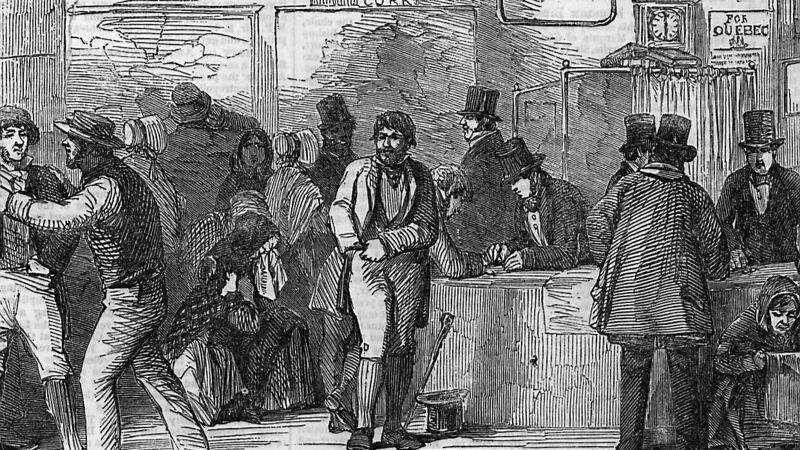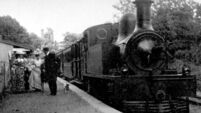A priest, his hitch-hiker in Oz, and amazing Cork connection

They say travel broadens the mind but that doesn’t mean that those who never ventured far were less wise than people who went hither and yon. I’ve met people around here who were never in Dublin, though they lived to be four score and more.
For many growing up in rural Ireland in years gone by, the term ‘abroad’ had far different connotations than in today’s fast-moving world, which seems to be getting smaller and smaller with each passing year.
In my younger days, someone might come into the haggard to meet Mam or Paddy who worked with us. If they enquired from Aunty Jo, she might well answer ‘They’re abroad in the Well field’, or some other such place. Everything is relative of course.
In the early 1960s, trips to the town of Fermoy - all of eight miles away - weren’t taken at the drop of a hat. We shopped on a daily basis in the village of Bartlemy where food for the family, petrol for the car, coal for the fire, and ration for the pigs could be purchased. The Creamery was only down the road in Castlelyons and when the empty milk churns were brought back each afternoon by Dave Ryan, he often brought a bag of cement, a handle for a pike or bits and pieces for farm plumbing.
I was ten when the Mallow-Fermoy-Rosslare railway line closed down, but sorry to say, I never got a train-trip from Fermoy.
All my early visits to the bustling metropolis of Cork city were trips to visit eye specialist Dr Ina O Connor in the South Infirmary. Back then going to Cork was a big deal and something that would be well planned.
Today, if you went to Cork for a few bits and pieces and forgot something, shure you’d think nothing about going back up later in the same day!
How times have changed and I suppose most of these changes are surely for the better. Only problem is, of course, that nowadays, when it comes to travel and work, we have so many labour-saving and time-saving devices we should have loads of time for talk and chat - but most people are too busy!
Thinking of travel, just lately I was doing a bit of work pruning, paring and shaping our family tree and came across a ‘lost’ Arnold. I use the word ‘lost’ advisedly as I know very little about Patrick Arnold, who was, according to handed-down family lore, my great grandfather’s brother.
Now, Arnolds are a scarce enough commodity in Ireland, so I thought it might be likewise ‘Down Under’. well, ‘twas I got the shock when I acquired the Phone Directories for the cities of Melbourne and Sydney. There weren’t dozens of entries of ‘Arnold P.’ - but hundreds of them - so no joy there at all.
Different relations have arrived over the last few decades but none claim any connection with my great, grand uncle Paddy. My to-do bucket list gets longer each year but I’ll get there some day!
Back in the 1950s, a relative of mine, Fr Jack Ring, who ministered in Australia all his priestly life was driving in the desolate outback. He saw a man walking along by the side of the dirt track and stopped to offer him a lift.
The man was so glad of the respite from the blazing sun, and his destination - well, it was simply wherever the priest was going. He was truly ‘a man of means, by no means, king of the road’.
On a journey of maybe five or six hours, the two men struck up a conversation. Fr Jack recognised his companion’s Irish accent - though somewhat ‘dulled’ after decades in Australia. Yes, he confided, he was from Ireland, from Co. Cork actually.
“Me too,” said Fr Jack, “from where in Cork?”
The stranger replied: “From a little village called Rathcormac.”
“Me too,” said Fr Jack excitedly.
“On the outskirts of the village, a place called Bride Street,” said the man.
Fr Jack was stunned and he pulled over and stopped the car. It turned out the traveller who was offered the lift was one of a large family.
There were 13 children in the Cosgrove family - a family synonymous with forges and smithy work. The man Fr Jack offered a drive to was born in the very last house on the Cork side of Rathcormac village. Fr Jack was born in his parents’ public house - still known to this day by many as Ring’s Cross.
The Cosgrove man was perhaps 20 years older than the priest and was in Australia with many a year. They say it’s a long road that has no turning, yet the two neighbours met on a long, straight dirt-track far, far away from the banks of the Bride.
A rough ‘guesstimate’ says we may have but five million ‘at home’ but nearly 70 million people across the world claim Irish ancestry! Wait till they all come chasing their roots!
It’s a massive cohort of persons with some smidgen of Irish DNA coursing in their veins. I suppose there’s scarcely a town, village or townland in Ireland that hasn’t witnessed emigration at some time or another.
Parting is such sweet sorrow, yet for millions down the years it was almost inevitable.
People often ask me why did so many who left in the post-Famine years, especially those who went to Australia and America, not keep in touch with the folks back home? In fairness, some did, but for most the stark reality was they would never, ever return to the land of their birth so perhaps it was easier ‘to make a clean break’ - in other words, Ireland was the past and their new country was now home and would be into the future. Maybe it was easier to just look forward, not back.
I heard recently of two brothers from East Cork who left for America, I’d say about the turn of the 19th century. They were two brothers in a large farming family. Maybe they had an older sibling or an aunt or uncle already ‘over’. One way or another, they decided to try and make their fortune in the land of the free and the home of the brave.
Their family home was at the end of a long boreen with several other homesteads served by the same rural road.
Well, the morning of departure arrived and the two boys were ready and dressed up well with a battered suitcase each. A walk of about four miles to the train station in Carrigtwohill, and then get the train to Cobh - or Queenstown as it then was -that was the plan.
I don’t suppose passports were needed - or even invented back then. You had to pass a basic eye and fitness test, buy the ticket and America here we come.
The two brothers were near the road as they passed the haggard of a neighbour. The cows were being milked - by hand of course. The milker left the stall and asked the lads where they were heading. “America,” came the answer.
“Give me one half an hour,” said the neighbour, “and I’ll go with ye.”
They waited while he finished the milking and a few other jobs. He went in home and said to his parents: “The Donovans are heading for America, I’m going with them,” - by all accounts the parents agreed with his decision, they had two more sons that could ‘fall in’ farming.
The three went off down the road and never came home again.







 App?
App?




